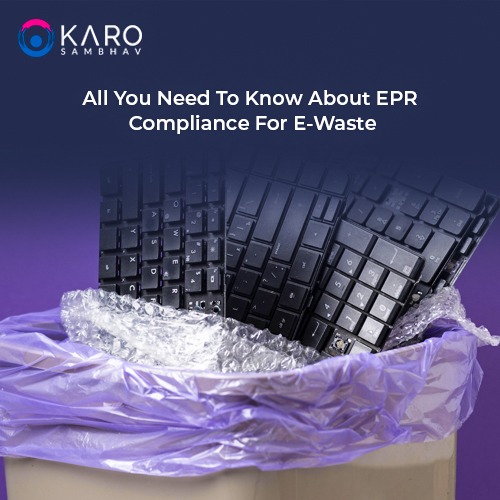Extended Producer Responsibility Program for Packaging
Plastic
serves as a primary material in the packaging industry. Do you agree?
Unfortunately, the growing volumes of packaging materials increase toxicity and
environmental pollution. This is why the government introduced packaging Extended
Producer Responsibility India to make producers significantly responsible
for the packaging they continue to impose on the market and manage and delve
deeper into its end-of-life.
Simply put, EPR is an environmental policy or regulation implemented under the Plastic Waste Management Rules, 2016. The policy vests entrepreneurs, manufacturers and importers the responsibility to process their plastic packaging waste via recycling, reusing, or rethinking the end-of-life disposal of plastic packaging. Did you know there are ample ways to reprocess plastic waste into energy or industrial composting? Besides, end-of-life plastic components can be utilised in construction and road-making. In short, EPR India in packaging aims to make producers, importers, and brand owners a little more aware and responsible towards managing and treating post-consumer packaging materials. The policy approach is intended to decrease the whopping amount of plastic trash piling in landfills.
Ever wondered how EPR benefits in real time? Extended Producer Responsibility allows entities to enjoy better clarity on how waste should be collected, treated, recycled, and disposed of. Also, it offers a rigid framework for waste management and makes the entire process more efficient and seamless. In addition to waste management, EPR enhances the recyclability of packaging materials. Wondering how? Well, the regulations provide additional funds to support robust recycling programmes. The incentive factor increases the recycling rates and efficiency of the programmes and provides a benefit to society.
In order to streamline the implementation of EPR consulting, the Ministry of Environment, Forest, and Climate Change, in association with the Government of India, issued amendments to the Plastic Waste Rules. Do you know what the amendments suggest? As per the regulations, Producers, Importers, and Brand Owners (PIBOs) must first register themselves on the centralised platform set up by the Central Pollution Control Board (CPCB). The portal offers accountability, traceability, and transparency of information. For example, it gives the government a clear view of whether a producer or an importer is complying with the EPR regulations that intend to strengthen the initiative of circular economy in the country. Further, PROs like Karo Sambhav assist businesses in adopting circularity and staying compliant with the EPR framework and regulations.



Comments
Post a Comment